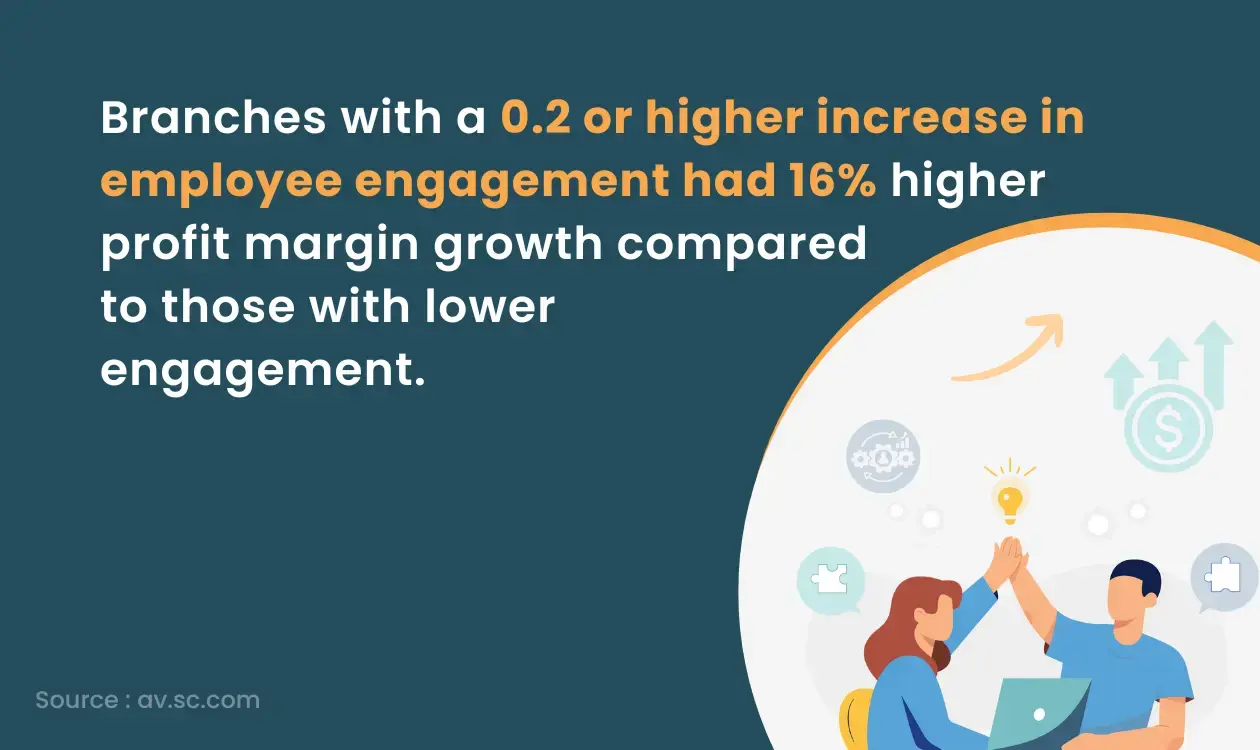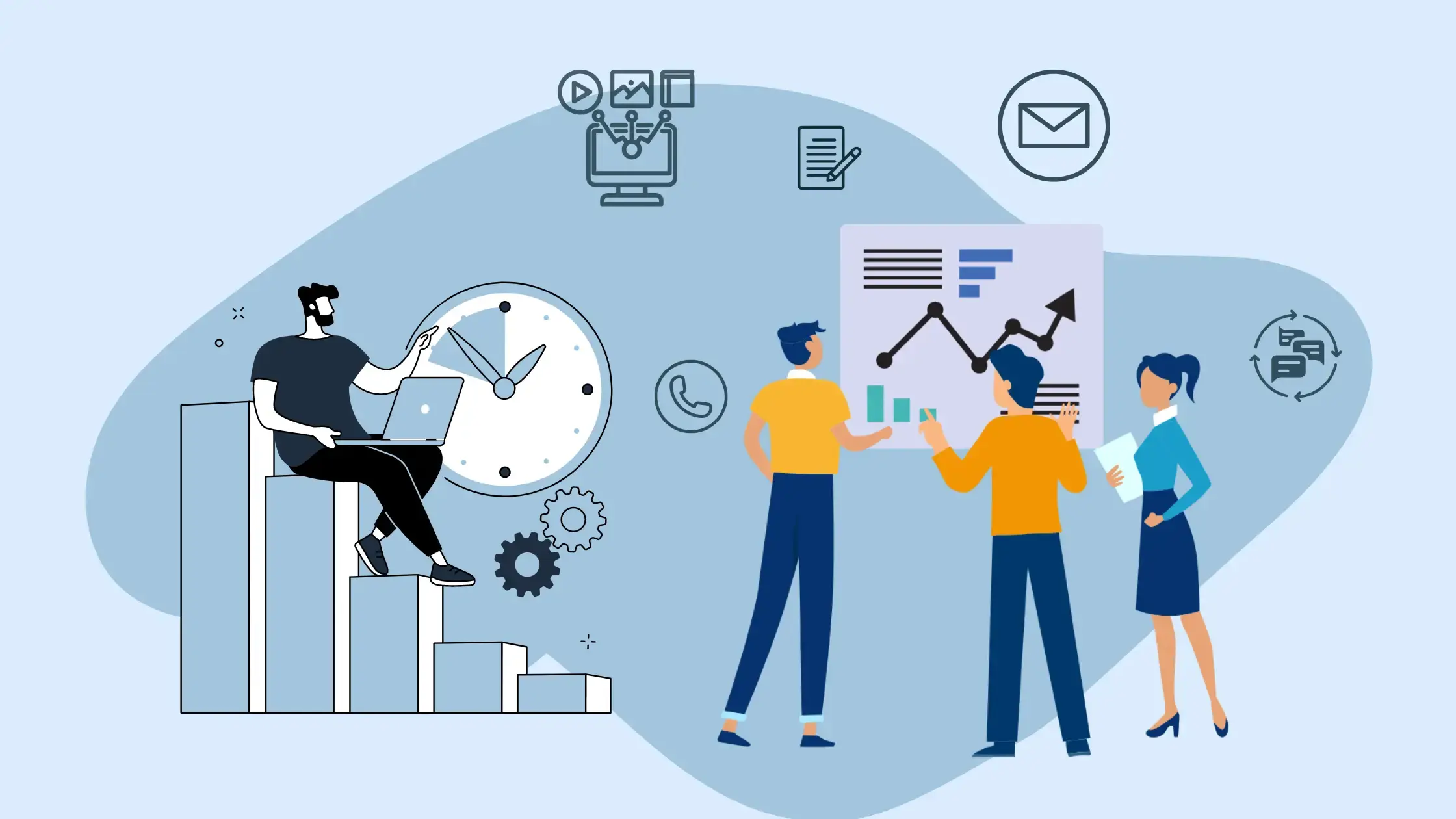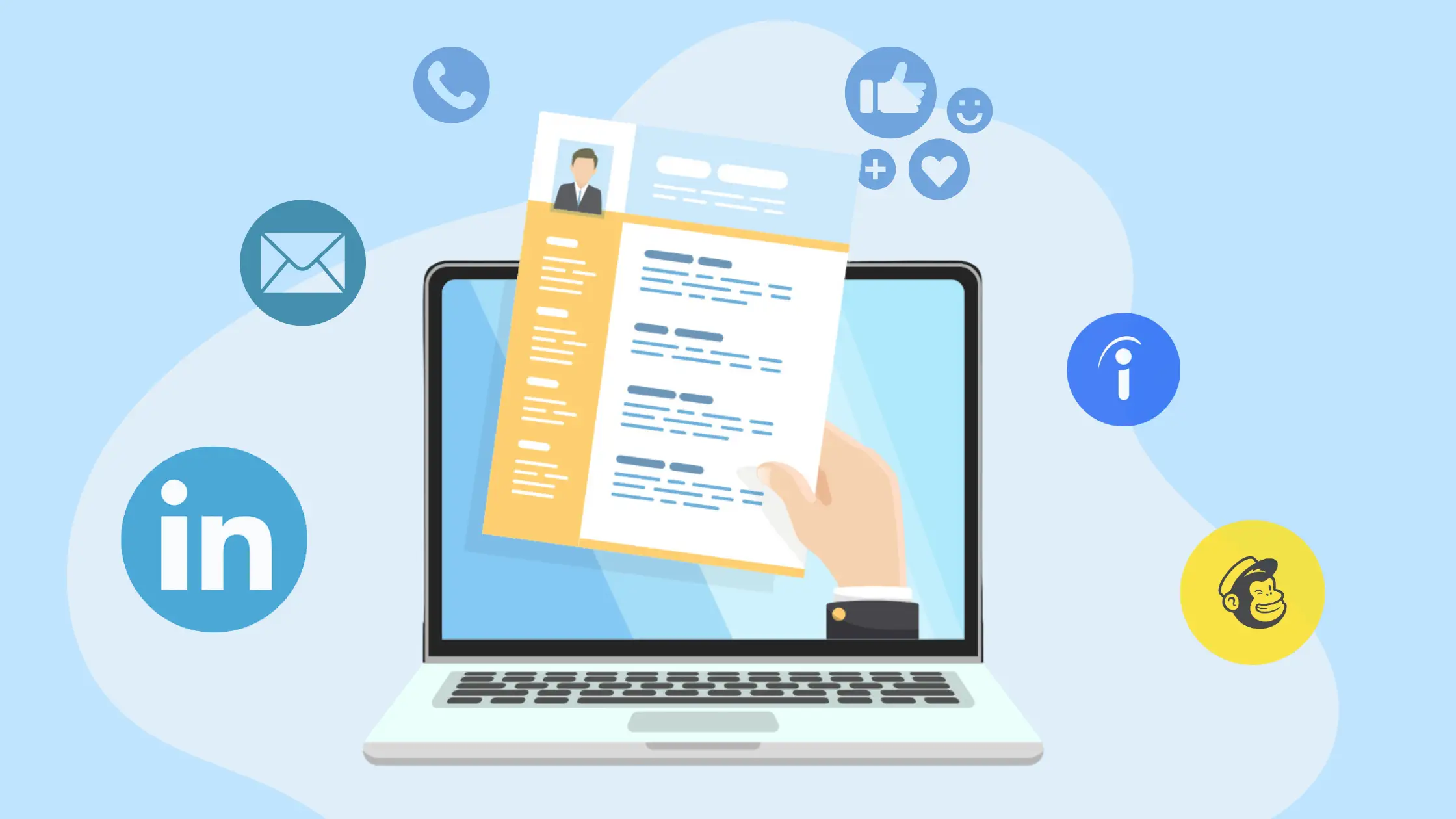TL;DR
- Foster a flexible work environment to enhance employee satisfaction and productivity.
- Improve communication and set clear objectives to align team efforts effectively.
- Encourage good time management and reduce workplace distractions for better focus.
- Promote healthy living, stress reduction, and a positive company culture.
- Recognise employee achievements with rewards and constructive feedback.
- Invest in training and recruit the right talent to sustain high performance.
- Utilise technology to streamline workflows and enhance collaboration.
Are you tired of your employees slacking off and not getting their work done?
Do you feel like you're pulling your hair out, trying to motivate them?
Well, you're not alone. A lot of managers struggle with this. But don't worry. In this blog, you’ll learn some tips on how you can improve the work performance of your employees.
First things first, let's talk about why employee performance matters. It's not just about getting work done. It's about creating a positive and productive work environment. When your employees are happy and engaged, they're more likely to go above and beyond. And that's good for everyone, right?
So, how can you improve employee performance?
Well, it's not as simple as just telling them to work harder. You need to create a culture where employees feel valued, supported, and motivated. You also need to provide them with the tools and resources they need to succeed.
Improving employee performance is not always easy, but it's definitely worth it. By following the tips in this blog post, you can create a more productive and positive work environment. And that's something that's something that's something that everyone can benefit from.
So, if you're ready to take your team to the next level, keep reading.
What Does Work Performance Mean?
As the word suggests, work performance is a term that defines how productively an individual is working in his job role. It is estimated based on tangible and intangible metrics like revenue and communication.
Depending on how crucial the tasks assigned or the job role of an individual is, their work performance impacts the business bottom line. The companies who have invested in improving the work performance of employees and keeping them motivated have seen viable growth in their bottom line.
For instance, a study conducted by Standard Chartered found 16% higher profit margin growth than branches where employee engagement was low.

How to Improve Work Performance in Your Employees?
Many factors come into play when the work performance of any employee is not satisfactory. For example, it could be inadequate growth opportunities, employee recognition and collaboration, etc.
Managers can improve work performance by listening to their team, recognising their efforts, and mainly working on engagement efforts. So, here in this blog, we share the 16 ways that will help you to improve the work performance of your employees so that you can implement them in your company efficiently.
1. Foster Flexibility in the Workplace
Especially after the Covid, employees have accustomed themselves to working as per their own time, managing their personal and professional tasks every day. In addition, companies now allow employers to work in rotational shifts, making it easier for them to manage their work-life balance. Being flexible with work hours is a great way to encourage employees to be productive and not let them switch from your company anytime.
A report by Owl Labs has also revealed how even a day of work from home in a month can increase employees' job satisfaction by 24%.
It's simple when you care for your employees, they care for your company too. So start trusting your employees with their work and let them do it at their pace and the work model they like.
2. Enhance Communication Effectiveness
Often, one employee's or department's tasks are closely linked to the other. So, communicating clearly in time is crucial for effective collaboration. As a manager, you must train your team on how to communicate better and review your communication strategies. Communicating your company's goals and visions plays a significant role in boosting employee efficiency. This creates a sense of ownership in the employees and helps them align their personal goals more effectively.
Ask the team to set a timeline for every task and share the feedback continuously. Then, communicate even more when they need help, feel overburdened or can't deliver work in the desired time. All these will help you plan and delegate the tasks accordingly so that no employee will have to sit ideally and in return, they will get overwhelmed having a list of tasks for another day.
3. Master Time Management
Train your employees on how they can better manage their time. It is ideal to do it before starting your new project. Tell them how you don't want them to work beyond work hours. Giving good work performance is faster with time management. Encourage your team to take breaks and recharge. Normalising activities like going for a walk or playing brain training games like sudoku, which can help employees refocus.
Managers can encourage their team members to utilize time-tracking software such as Workstatus or Clockify to organize their tasks based on importance and urgency. This allows for efficient scheduling and progress tracking throughout the day. For teams looking for a simple, web-based solution to accurately track work hours, breaks, and overtime, a tool like the time card calculator can be a valuable addition to their workflow.
4. Reduce Workplace Distractions
Social media has made it easier for employees to get distracted. But it is important to limit the distractions, or they will take a toll on your productivity. Try to avoid engaging with certain devices like your personal mobile phone. It is surprising how quickly they catch your attention. Even the news playing in the background can easily distract you for a while.
By limiting distractions, you and your team will witness a substantial change in your productivity levels. A survey by the American Institute of Stress has mentioned that distractions lead to a lack of control over one's work and attributes to significant reasons for work stress.
To ensure that you and your team are not getting distracted, you can ask them to mute their mobile phone notifications and take a small break after completing a particular task where they can use their mobile phones.
5. Organise, Plan, and Prioritise
When we don't organise and plan our priorities, it gets challenging to optimise our work performance. It helps if you consider such things while organising business, like encouraging people in the team to plan tasks based on priorities and not to procrastinate them by delaying them from getting completed.
Typically, employees work 8 hours a day for five days a week. But, a significant chunk of these hours gets wasted in the chitter-chatter and worrying about how to accomplish all the tasks. In addition, when there is so much going on already, the frequent meetings add up to the delay.
The Washington Post mentions Research by the University of California on how every 3 minutes, employees are interrupted and how it takes up to 23 minutes to resume the work they left in between.
Indeed, some meetings aren't as relevant. So avoid organising impromptu meetings and always send an email stating the agenda of meetings so everyone can be better prepared with their inputs.
6. Define Clear Objectives
If employees have a clear idea of what is expected from them, they will focus their efforts on achieving their goals. Otherwise, it's like asking them to drive mindlessly with no defined path or destination.
To avoid confusion, you sit with each team member individually while setting goals and objectives. Then, use the time to discuss the plans and put them once agreed upon mutually. By measuring employee performance against goals and objectives,and utilizing employee goal setting software you and your employees would be able to better track productivity and create a mindmap of how each goal can be accomplished.
7. Promote Healthy Living
As long as you are physically fit, you will get able to do anything that you want. But when you or any of your team members are not healthy, it is likely happen that your team will fail to achieve targeted results. So, ask the company to appoint a Zumba instructor online or get a gym membership for your employees.
To begin with, they can even pledge to make a little movement a part of their daily routine before or after the office, like walking, dancing, and practising mindful eating.
8. Reduce Stress Levels
Stress can put employees at a higher risk of committing errors, burning out, having conflicts, and ultimately leading to poor work performance. Pressure might also occur not because of being burdened but procrastination, self-doubt, poor time management, or not trusting others enough with the work.
As a manager, to improve work performance, you must try to inculcate the habit of collaborating and delegating. Tell them no one can be a master of all skills required to complete a project. Therefore, it's important to set up a project timeline. This will help your team to recognize what role they play in the overall success of a project. If this goes unnoticed or ignored, the company will witness high turnover, absenteeism, and disengagement.
9. Recruit the Right Talent
When filling an open position, it is essential to hire top talent in the budget for the job. But, to find the top talent, you need to be at the same place your candidates are. You can get creative and keep the candidates' interests in the focus with some excellent recruitment practices. This will help in ensuring good work performance from the start.
Also, the most important things to look for in a candidate are passion and, of course, skills. If the company succeeds in keeping them motivated as they work, their work performance is sure to go beyond or as expected.
10. Unplug After Hours
It gets monotonous to have a fixed routine and work 5-6 days a week. As a manager, if you notice a team member finding it hard to better or keep their work performance at par, you must have a one-to-one talk with them. You would get surprised to know how many employees need a break.
Your company can introduce a paid time off policy that encourages employees to enjoy vacation or personal days beyond work in good faith of employees and businesses. Then, when they join work after their little break, they would be back on track with the same or even better energy at work.
11. Take Accountability for the Tasks
Lead by example, avoid being the manager that procrastinates and doesn't take accountability for any work. Instead, use reflection models to reflect things on yourself also, try to put effort and vision into whatever you do. You might think people barely know your work style and what you are working on, but they do.
When your team has a leader who pushes their boundaries to get things done, they would also try to do the same. Another trick to increase productivity is defining who is accountable for getting a specific task done in the desired timeline. For instance, if there is a task to write X blogs in Y days by three content team members, you can assign and hold one person from these to ensure the work is on track.
12. Welcome Constructive Feedback
Keep giving and receiving feedback irrespective of your seniority. Develop a culture where employees' constructive feedback is appreciated. When you share your feedback, make sure you don't just highlight what's wrong but also what went well.
For instance, as you share your feedback on the tasks that each team member is working on, you can also ask what they dislike in your management style. Take improvement suggestions and work on what's legit. This would show how much you value your employees and believe in their potential.
13. Provide Rewarding Incentives
Sometimes waiting for the appraisal cycle, mostly twice or once a year, to applaud reasonable work delays can make employees feel unrecognised for their work and demotivate them.
Companies must launch incentive programs and reward for the job that gets done well to avoid such instances. It could be a bonus, shopping or dining vouchers, upskilling program, etc. Appreciating good work with monetary benefits is one of the best ways to skyrocket work performance and create healthy competition.
14. Invest in Employee Training
All employees' primary goal is to get promoted that pays them more than they deserve. However, after promoting them to the new role, how about giving them the required training to complete the job role they have transitioned to? For instance, if someone in a department is promoted to a managerial position, it would be good to train them to manage a team well. At the right time, proper training and development set your people up for success in the job role.
Moreover, when you invest in employees' growth, it reflects in their work performance which will help reduce employee turnover.
15. Cultivate a Positive Company Culture
Wherever employees are highly valued and cared for, they feel satisfied with their job roles in the company. This is why it is quintessential to set up an exemplary work culture that promotes employees' health and supports their individual goals.
Competitive salary, best benefits, perks and upskilling courses are some of the ways to demonstrate a great culture, engage employees and enjoy improved work performance.
16. Celebrate Team Successes
As much as monetary appreciation matters, it stands incomplete without words of appreciation from peers and management. So, as a manager, you should never miss highlighting the individual and team who are star performers. Even a gesture like a small team dinner when possible or at least once a month or two matters.
Other ways to celebrate wins are by mentioning a team member in a company-wide meeting, writing a handwritten note, creating an interactive PDF, or even sending an email. No matter how you choose to appreciate it, it would encourage employees to do their best.
Role of Technology in Enhancing Employee Performance
In today's day, technology has become a part of day to day. People can’t able to live one day without technology. In modern business, technology serves as a cornerstone.
In today’s digital age, technologies like project management software, AI-enhanced analytics, and collaborative platforms are essential. They not only optimise workflow but also empower employees by providing them with the necessary resources to excel in their roles.
For instance, project management tools help you to keep track of deadlines and priorities, ensure that everyone is on the same page, and reduce the chances of critical tasks slipping through the cracks.
Moreover, communication tools such as Slack or Microsoft Teams have revolutionised the way teams interact, enabling real-time collaboration across different locations. This is particularly beneficial in hybrid or remote working models, where you can easily maintain team unity can be challenging.
Embracing technology is not just about adopting new tools; it's about creating a culture where technology is integrated into the daily workflow to maximise productivity and employee satisfaction. This strategic integration leads to a more agile, responsive, and competitive business.
Summing Up
It is essential for HRs to hire top talent, managers to appreciate and guide them well, and companies to make policies that favour their employees. Cultivating an environment where everyone is respected, learning new things continuously, and valuing talent results in better work performance.
Since, as per the above-noted ways, it will definitely help you with providing ideas for further steps towards the betterment of your organisation.
FAQs - Frequently Asked Questions
What is work performance and why is it important?
Work performance refers to how effectively an employee completes their job tasks. It is important because it impacts overall business success and creates a positive work environment where employees feel motivated and engaged.
How can managers improve employee motivation and performance?
Managers can boost motivation by fostering flexibility, recognising achievements, providing clear goals, and encouraging open communication. Tools like iSmartRecruit also help streamline recruitment to find the right talent.
Why is time management crucial for employees?
Good time management helps employees prioritise tasks, avoid burnout, and increase productivity. Encouraging breaks and using time-tracking tools can improve focus and efficiency.
What role does company culture play in work performance?
A positive company culture makes employees feel valued and supported, which increases satisfaction and performance. Benefits, rewards, and celebrating team success are all part of cultivating a great culture.














.webp)


